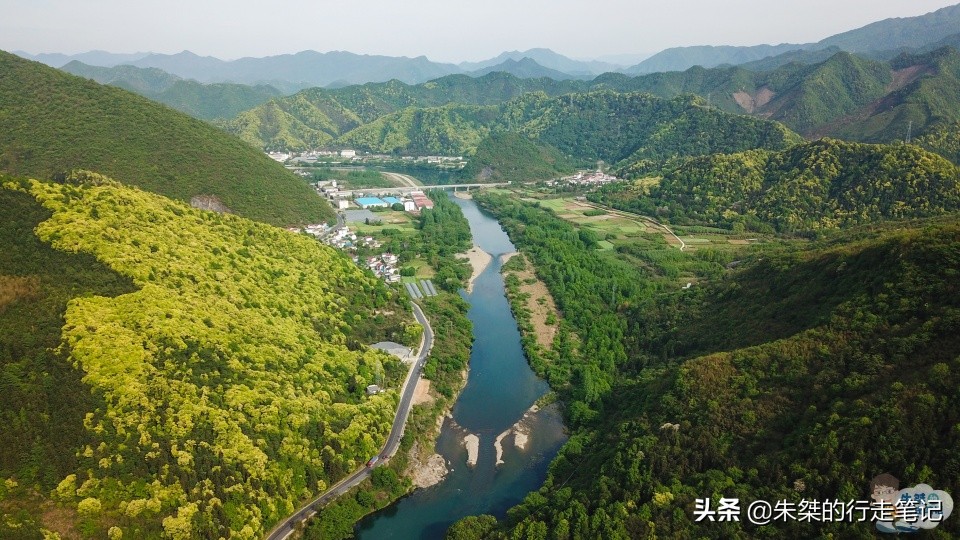"During the Qingming Festival, it rains a lot, and pedestrians on the road want to break their souls." Asking where the restaurant is, the shepherd boy remotely refers to the apricot blossom village" The famous late Tang Dynasty poet Du Mu, a popular poem of "Qingming", sang out the intoxicating rain, flowers and wine of Jiangnan Qingming, and also sang out a famous apricot blossom village for thousands of years. So do you know where the "apricot blossom village" in the poem is?

When it comes to "Apricot Blossom Village", most people must think of the first village of Chinese famous wine - Xinghua Village in Fenyang, Shanxi. After all, it is the famous liquor capital, the largest production base of fragrant liquor in China, and the main production of Fenjiu and Bamboo Leaf Green Liquor is the number one famous wine in China. Although Du Mu's "Qingming" poem is almost well known, if you are suddenly asked where is the "apricot blossom village" that the shepherd boy in the poem refers to? Many people naturally equate the two. In fact, the "apricot blossom village" in Du Mu's poem is not in Fenyang, Shanxi, but in Chizhou City, Anhui.
When it comes to Anhui Chizhou, many people may not be clear, but if you talk about several major "famous properties" in its territory, it must be known to everyone. For example, Jiuhua Mountain, one of the four famous mountains of Buddhism in China, known as the "first mountain in the southeast"; the world-famous black tea variety Keemun black tea; Shitai County, one of the three selenium-rich lands in China and enjoys the reputation of "the most beautiful mountain town in China's original ecology"; the Qiupu River where the poet Li Bai has visited and left the seventeen poems of the famous "Qiupu River" many times; the Dongliu Town where Mr. Wuliu Mr. Tao Yuanming, who "picks chrysanthemums under the eastern fence and leisurely sees the South Mountain"; Guichi Opera, a "living fossil of Chinese drama", and so on.
Chizhou, abbreviated as "Chi", alias "Qiupu", ancient name Chiyang County, is a prefecture-level city in Anhui Province, located in the south of Anhui Province, on the south bank of the lower reaches of the Yangtze River, is an important riverside port city in the Yangtze River Basin. Tang Gaozu Wude established the prefecture in 4 years (621), which has a history of 1400 years. Chizhou has a superior geographical location, excellent ecological environment, profound historical heritage and rich tourism resources. Known for its ecology, it is a natural and beautiful ecological green city, known for its "famous mountains, beautiful water, selenium-rich land, good air", Qingfeng stretches green, clear blue water, forest coverage rate in the city is nearly 60%, selenium-rich resources account for nearly 61% of the city's area, and the quality of the atmospheric environment is in the forefront of Anhui Province, known as "natural oxygen bar". It is a national green ecological demonstration urban area and the first choice for people's health care.
Rich resource advantages, so that Chizhou has become a well-known tourist city. The territory has more than 300 scenic spots such as Jiuhua Mountain, Yaniu Descending, and Shengjin Lake. It also has profound cultural connotations such as poetry, religion, opera, and folklore. Chizhou, known as the "land of poets for a thousand years", has been stopped here by countless literati and inkers in history, and left valuable cultural treasures, such as Li Bai, Du Mu, Tao Yuanming, Su Shi, Yue Fei, Wen Tianxiang, Li Qingzhao and so on. The Buddhist culture of Jiuhuashan, with the Jizo spirit as the core, not only has a prominent personality, but also has a noble concept and a complete system. Known as the "living fossil of opera", Chizhou Opera and "Huichi Yatuo" Qingyang Cavity are listed as national intangible cultural heritage, known as "encyclopedias of Chinese opera". There are also chizhou folk culture with different styles such as flower lanterns and Jiuhuashan temple fairs in the east.
"The county tower is higher than the Xiushan Gate, and the monuments are not to be discussed today. Du Mu had a famous sentence in that year, singing the apricot blossom village outside the city" "Because of du mu's "Qingming" poem name broadcast history, the apricot blossom village outside the Xiushan Gate of Chizhou, which is famous all over the world, has been the pride of the people of Chizhou for thousands of years. The "Apricot Blossom Village Chronicle" that was conceived here is the only village chronicle included in the "Four Libraries Complete Book". "The autumn wind is now again, changing the human world", the long river of years can always clean up a different novelty. Today's Chizhou is no longer the small state of Jiangdong that used to be "Wutou Chuwei", but a gorgeous jewel embedded in the land of Jianghuai and the eight hundred miles of the Anhui River. If Du Mu had a spirit in heaven, he would probably be proud of today's Wuhua Tianbao, the spirit of the people, the beautiful mountains and rivers, the political and the people, and the new Chizhou.